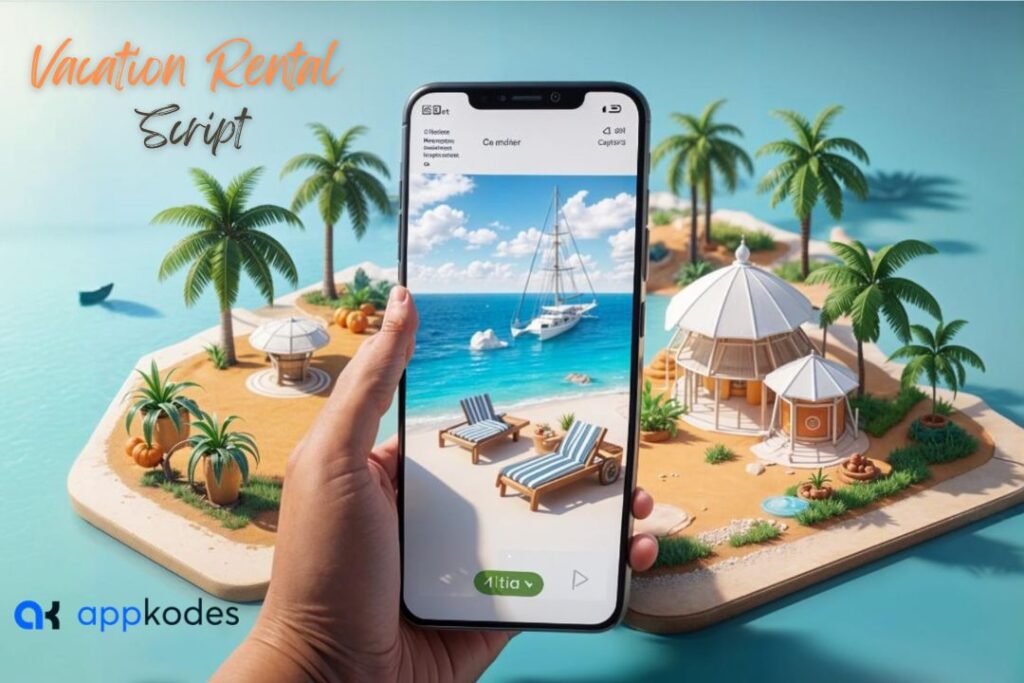The vacation rental industry has grown significantly over the past few years, offering entrepreneurs a lucrative opportunity to tap into this booming market. However, building and launching a successful vacation rental platform requires careful planning, the right technology, and a strategic approach. This guide will walk you through the essential steps to create a profitable and efficient vacation rental platform that stands out in a competitive landscape.
1. Market Research and Planning
Before diving into development, it’s crucial to conduct thorough market research. Understand the current trends in the vacation rental industry, identify your target audience, and analyze your competitors. This research will help you define your niche and set clear goals for your platform.
Steps to Conduct Market Research:
- Identify Your Target Audience: Determine the demographic you want to cater to, whether it’s luxury travelers, budget-conscious families, or adventure seekers.
- Analyze Competitors: Study successful vacation rental platforms to understand their strengths and weaknesses. Identify gaps in the market that your platform can fill.
- Define Your Unique Selling Proposition (USP): Determine what will make your platform stand out. This could be anything from unique properties, superior customer service, or innovative technology integration.
With your research in hand, create a business plan outlining your goals, target audience, revenue model, and marketing strategy. This plan will serve as a roadmap for your platform’s development and launch.
2. Choosing the Right Vacation Rental Script
One of the most crucial decisions you’ll make is selecting the right vacation rental script to build your platform. A Vacation Rental Script is a pre-built software solution that provides the essential features and functionalities needed to run an online rental business. The right script will save you time and money by providing a solid foundation upon which you can build your platform.
Key Features to Look For:
- User-Friendly Interface: A clean, intuitive design is essential for a positive user experience, making it easy for both property owners and renters to navigate your platform.
- Property Management Tools: Ensure the script allows property owners to easily manage listings, including adding photos, descriptions, pricing, and availability.
- Advanced Search and Filtering: Renters should be able to find properties that match their preferences quickly through robust search and filtering options.
- Secure Payment Integration: Choose a script with reliable payment gateways that support multiple payment methods and currencies.
- Mobile Responsiveness: With many users accessing platforms via mobile devices, your script must be mobile-friendly to ensure a seamless experience.
3. Customizing and Developing Your Platform
After selecting your vacation rental script, the next step is customization. Tailor the script to reflect your brand’s identity, including your logo, color scheme, and overall design aesthetics. Customization is key to creating a unique platform that stands out from competitors.
Customization Tips:
- Branding: Ensure your platform’s design aligns with your brand’s image, creating a cohesive and professional look.
- Content: Populate your platform with high-quality content, such as detailed property descriptions, engaging photos, and informative blog posts. Quality content not only enhances user experience but also improves your platform’s SEO.
- User Experience: Optimize the user journey by simplifying navigation, improving loading times, and ensuring that the platform is intuitive for users of all ages and technical abilities.
Work closely with developers to integrate any additional features your platform may need, such as AI-powered tools for personalized recommendations or chat support. Testing is also crucial at this stage—ensure every feature works flawlessly before moving on to the launch phase.
4. Launching Your Platform
A successful launch is critical to your platform’s long-term success. Plan a launch strategy that includes marketing, customer outreach, and support readiness.
Launch Strategy Steps:
- Pre-Launch Marketing: Generate buzz around your platform with teaser campaigns, social media posts, and email newsletters. Offer early access or special discounts to attract your first users.
- Launch Event: Consider hosting an online launch event where you can showcase the platform’s features, answer questions, and engage with potential users.
- Customer Support: Ensure you have a dedicated support team ready to assist users with any issues they may encounter during the initial launch phase. This is key to maintaining a positive user experience.
5. Post-Launch Strategies for Growth
After launching your platform, focus on growth and continuous improvement. Monitor user feedback and platform performance to identify areas for enhancement.
Post-Launch Growth Tips:
- Expand Listings: Continuously add new properties to your platform to keep it fresh and appealing to users.
- Enhance Features: Regularly update your platform with new features and improvements based on user feedback and industry trends.
- Marketing: Invest in ongoing marketing efforts, such as content marketing, social media campaigns, and partnerships, to attract more users and increase brand awareness.
Conclusion
Building and launching a successful vacation rental platform is a multifaceted process that requires careful planning, the right technology, and ongoing effort. By conducting thorough market research, choosing the perfect Rental Script, and focusing on user experience and marketing, you can create a platform that not only stands out but also thrives in the competitive vacation rental market. Stay committed to growth and innovation, and your platform will be well on its way to long-term success.
More Blogs Read Us: https://blookets.co/



